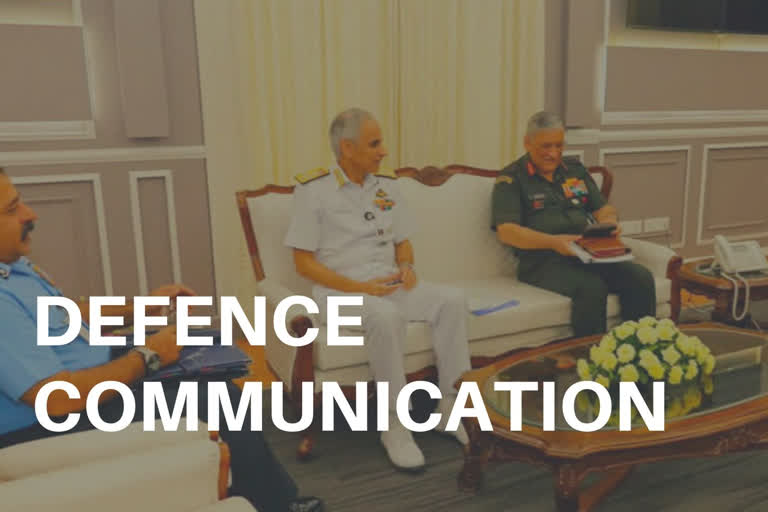New Delhi: Aimed at safeguarding sensitive intelligence information and maintaining maximum secrecy in intra and inter-organizational communications among the various wings of India’s armed forces, the Network for Spectrum (NFS) project, is expected to be rolled out in a few months from now on.
Planned and approved by the government nearly a decade back in 2009-10, the Rs 24,600 crore mega NFS project is an exclusive communication network for the armed forces including the army, navy and the air force over a maximum secure network.
In a cryptic comment at a defence industry event on Tuesday in the national capital, Army chief General Bipin Rawat said without naming any project: “Communication systems are the backbone of any operational plan and if secrecy is compromised no plan will work and to bring in secrecy it is important that we bring out indigenous systems. Today we are operating on systems that can be compromised. Let me assure you that in the coming months you will witness changes in the Signals Directorate.”
The Signals Directorate handles the army’s military communications. Besides enabling voice, video and data exchanges, the mega network will be amenable for use for all next-generation networks that will incorporate applications from the field of big data analytics and artificial intelligence.
NFS will act as a force multiplier for operations, interpreting and analyzing intelligence, rapid mobilization of forces, combating cyber threats which are all the more significant in the backdrop of the strong likelihood that future wars will be “short, intense and network-centric”.
NFS’ cloud-based applications will also enable effective record-keeping and storage of all data relating to the armed forces including health and service records.
The government is expected to allot more spectrum bandwidth to the armed forces as the NFS project will require more spectrum to enable the exclusive data-intensive communications.
At present, the army, air force and the navy maintain their own respective communication networks called the Army Static Switch Communication Network (ASCON), Air Force Network (AFNet) and the Naval Communication Network respectively. The NFS will seamlessly weave the three networks into a single secure entity.
With the newly emerging dimensions of cyberspace, space and special force operations growing in importance in modern military dynamics along with the focus on ‘jointedness’ and ‘integration’ of warfare, such a platform will be of critical importance.
The network would also be imperative for coordination with relevant agencies like RAW, Intelligence Bureau and intelligence organisations of the para-military forces as part of the Joint Intelligence Committee under the National Security Adviser.
Moreover, in the Indian context, the planned move towards a system of ‘theatre commands’ where all the wings of the armed forces are organized under a mini command and control system, would demand much better coordination between the various wings than ever before.
The second edition of the Joint Doctrine of the Indian Armed Forces (JDIAF-2017) highlights it well: “Undertaking ‘Integrated Theatre Battle’ with an operationally adaptable force, to ensure decisive victory in a network-centric environment across the entire spectrum of conflict in varied geographical domains, will be the guiding philosophy for evolution of force application and warfighting strategies.”
Read: India’s ‘Buddha diplomacy’ draws Vietnamese top military brass to Gaya



